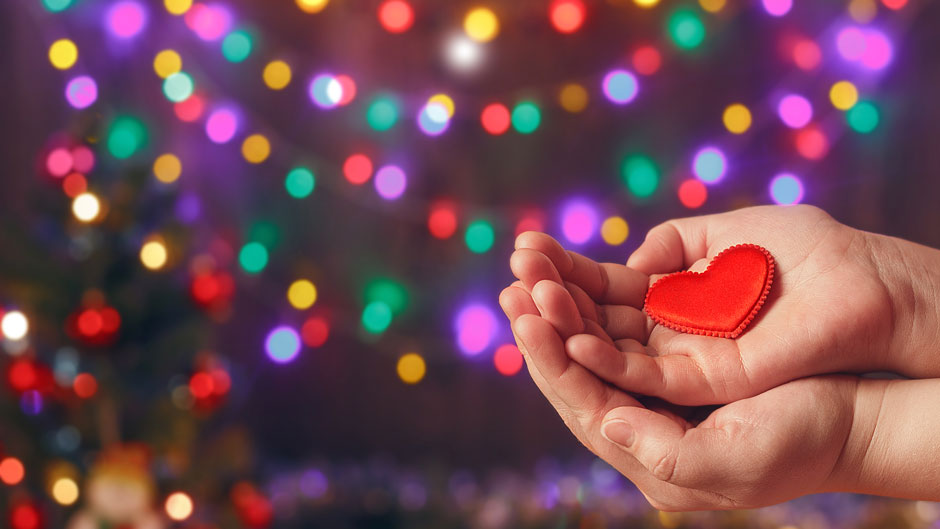Why does the holiday season, a time supposedly filled with joy, friends, and family gatherings, bring some people down? Feelings of depression and anxiety seem to swell during the holidays. With its picture-perfect moments, social media seems to exacerbate those feelings.
University of Miami School of Communication professor Meryl Blau, who is also a lifestyle coach, offers these tips to keep those holiday blues at bay:
- Treat your body right, and your mind will feel better, too.
People seem to adopt this weird mindset after Halloween that they are headed into a downward spiral of “bad habits” and there’s nothing they can do about it. They overindulge at Thanksgiving, eat and drink more than usual, decrease their exercise routines, and come up with excuses why they can’t stick to their good habits—until they throw in the towel and say, “I’ll fix it next year.”
This is a vicious cycle. When we eat foods we don’t typically eat and drink more alcohol than we typically drink, our bodies go into a state that makes us feel tired, sluggish, bloated, unhappy, and yes, eventually depressed. Worse, we can’t find our way out of it because we’ve convinced ourselves, with so much food and alcohol around, we are in a losing battle.
But, remember, you can relax and enjoy guilt-free indulgences if you eat right when you are not in an event/party situation. I suggest having a small, healthy meal before attending events, which will help you make better choices, and give you confidence to taste without diving head-first into the pie. Also, be sure to sip. Don’t gulp, and you’ll drink less alcohol.
Work harder than you do the rest of the year to exercise daily. It doesn’t have to be intense; just move your body daily. Stretch, do yoga, walk, go to the gym. It really doesn’t matter what. Just move.
- Take time to reflect on the positives of the past year.
The self-judgement and expectations we place on ourselves at the end of the year can also correlate with depression. The coming of a new year should be a time for reflection, but instead of looking back to celebrate the wins, many of us focus on what went wrong, what didn’t happen, what we should’ve done, and then we shame ourselves to set new year’s resolutions, goals, and expectations that most likely will repeat in the cycle.
Use this time to disconnect and recharge in a celebratory way. Resist feeling the need to measure your time against others around you. That’s a lot of pressure we put on ourselves.
- Take a digital detox.
Social media has become a livestream of doctored advertising and personal branding. People paint the picture they want you to believe. They show you moments that capture them in the best light. They retouch photos or take 60 to get the perfect one and then post it to show how perfect their lives are.
We all contribute to this phenomenon. We have become obsessed with the need to participate and/or stalk the lives of those who choose to share, but that certainly doesn’t help those who are suffering or feeling insecure about themselves or their current state.
So I love the idea of taking a digital detox over the holidays. I don’t think this is just for the sad or depressed, but something that is good for everyone at this extremely opportunistic time. Holidays are for seeing family, friends, taking a break and relaxing, so do less online, period. Focus on the present, enjoy the moment, listen unconditionally to the conversation, without care or wonder of what you’re missing on social media. It would not only be liberating, but really healthy for all of us to allow ourselves some space from the digital toxins we poor into our brains every day.
If you must post, do so, and then get out. If seeing the “happy-go-lucky-perfect social media lives” of others makes you feel sad, self-aware, or depressed, STOP SCROLLING! You have the power to decide to look. Make a different choice.
- Pay attention to cries for help.
If you do notice someone behaving out of character, doing something that gives you the sense that they are sad, or if they outwardly express their sadness, take it seriously. It’s not a cry for attention, it’s a cry for help. For example, if a person is holding a glass of alcohol in every post, even if they are smiling and having a good time, you may be seeing a sign of addiction or self-sabotage, or at least something that is worth thinking about—and reaching out about.
Beware, too, of people who stop their routines, oversleep, cry, or who are extra fragile, emotional, reactionary, or moody. Reach out to them. Check up on them. A caring voice works wonders.
- Avoid drama and carve out time for you.
It’s ok to say no. You do not have to attend everything or participate in everything. I know that FOMO is a real thing, but learn to create a safe space to simply be ok with doing less. If accepting an invitation provides more stress than joy, respectfully decline.
Slow down and take a breath. Go for a walk, even if just for 10 minutes. Read a book. Try a meditation app—just 5 minutes per day could change your life. Headspace is a great app for all ages. And make sure to get proper sleep. Sleep is the No. 1 factor in our stress levels. Strive for eight hours a day, but whatever you do, take time for yourself.
Those who find the holidays difficult for any reason are invited to attend the Blue Christmas observance at St. Bede Chapel at the Episcopal Church Center, 1150 Stanford Dr. (right by the guard gate on the Coral Gables campus,) on Friday, December 21, at 7 p.m.

